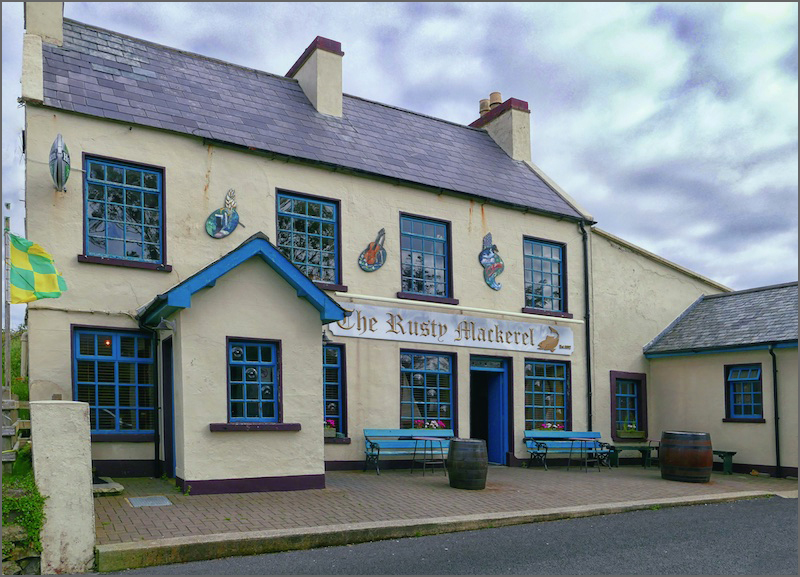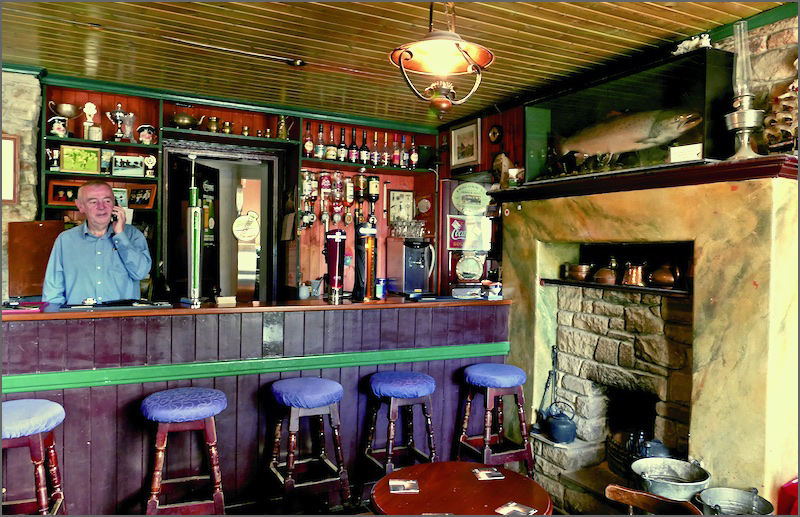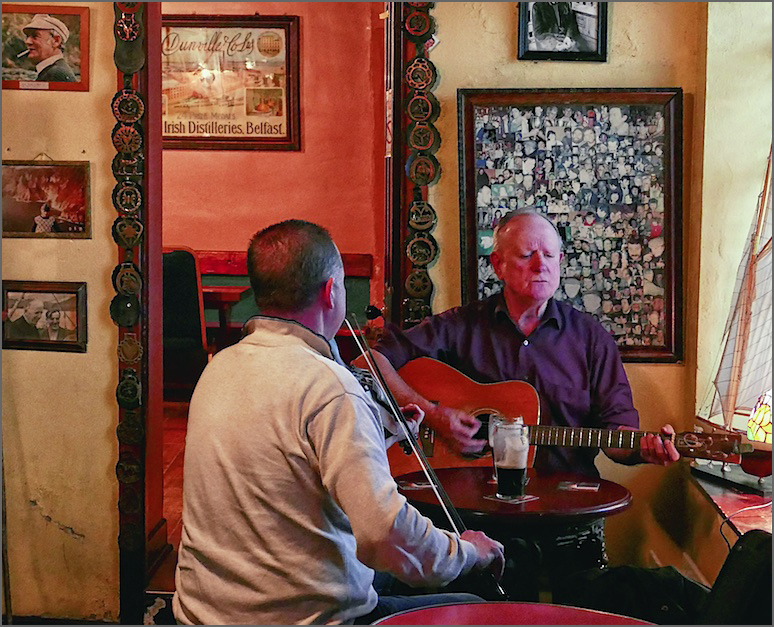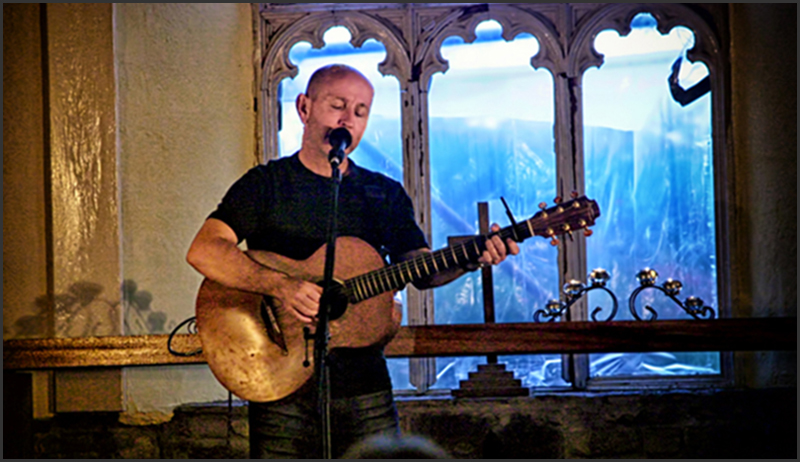Grace and the Easter Rising: One Hundred Years Ago
Today, the Republic of Ireland held official ceremonies marking the 100th anniversary of the the “Easter Rising,” the armed insurrection during Easter Week, 1916, by Irish Republicans seeking to achieve Ireland’s independence from England. When the Irish rebels surrendered a week later, the leaders of the rebellion were executed by firing squad. One of them was a journalist, writer and poet named Joseph Plunkett, who was graduated from University College Dublin with degree in Philosophy. Joseph was supposed to marry his finance, Grace Gifford, on Easter Day, but the wedding was postponed because of The Rising.
I knew only a bit of Irish history when Jim and I first visited Ireland, but mainly it was of the more recent “Troubles,” but not much about the many centuries of struggle before 1916 and its aftermath. I knew nothing about Joseph and Grace and their wedding that took place in Kilmainham Jail the day before he was executed. During our second visit to County Clare, I head beautiful ballad entitled “Grace,” during a live music session in Doolin. The melody is haunting, and the words tell of Grace going to see Joseph for the last time, and his words to her, shortly before he was executed on the May 4, 1916.
Years later I sat down at a used piano in a second-hand shop and started to play “Grace,” which I had learned to play by ear. A middle-aged woman came over to listen, and she had tears in her eyes when she said, “I haven’t heard that beautiful song in many years.” She and her husband had immigrated to Pennsylvania as a young couple. I think of her every time I hear the song or play it.
“Grace” is beautifully sung by tenor Anthony Kearns in the video below. For me, it is a fitting commemoration for the events of 1916, one hundred years ago.
I had to do some searching to find the authors of the song; they are brothers Frank and Sean O’Meara, who, according to a letter written by Sean, noted that it was composed in 1985. You can read the letter on this website that is devoted to Grace Gifford Plunkett, and the O’Meara’s song lyrics are posted below. I also discovered that the song’s reference to these lines — And I’ll write some words upon the wall so everyone will know / I loved so much that I could see his blood upon the rose — are a reference to Plunkett’s poem “See His Blood Upon The Rose,” the lyrics of which are posted at at this link.
Grace
As we gather in the chapel here in old Kilmainham Jail
I think about these past few weeks, oh will they say we’ve failed?
From our school days they have told us we must yearn for liberty
Yet all I want in this dark place is to have you here with me
Oh Grace just hold me in your arms and let this moment linger
They’ll take me out at dawn and I will die
With all my love I place this wedding ring upon your finger
There won’t be time to share our love for we must say goodbye
Now I know it’s hard for you my love to ever understand
The love I bare for these brave men, the love for my dear land
But when Pádraic called me to his side down in the GPO
I had to leave my own sick bed, to him I had to go
Oh, Grace just hold me in your arms and let this moment linger
They’ll take me out at dawn and I will die
With all my love I’ll place this wedding ring upon your finger
There won’t be time to share our love for we must say goodbye.
Now as the dawn is breaking, my heart is breaking too
On this May morn as I walk out, my thoughts will be of you
And I’ll write some words upon the wall so everyone will know
I loved so much that I could see his blood upon the rose.
Oh, Grace just hold me in your arms and let this moment linger
They’ll take me out at dawn and I will die
With all my love I’ll place this wedding ring upon your finger
There won’t be time to share our love for we must say goodbye
For we must say goodbye.
. . . . . . . . . . . . . . . . . . . . . . . . . . . . . . . . . . . . . . . . . . . . . . . . . . . . . . . . . . . . . . . . . . . . . . . . . . . . . . . . . . . . . . . . . . . .
To celebrate St. Patrick’s Day, I decided to post a musical tribute in the form of a video of one of my favorite contemporary Irish songs, “Bright Blue Rose.” In my music library I have versions of it by Tommy Fleming and Mary Black, but I also love this video by the songwriter himself, Jimmy MacCarthy, joined by the great Christy Moore and wonderful slide guitarist Declan Sinnott. What I like so about this video is that it is pretty close to the kind of intimacy you enjoy when musicians—famous or not-so-much—decide to gather in a pub to play and sing.
During our trip to Donegal last fall Jim and I dropped into The Rusty Mackerel, a cozy pub on the road to Teelin Harbour, where we took a pleasant boat trip to Slieve League.
I loved the pub’s rustic atmosphere, so we were happy to return in the evening to hear some excellent local musicians.
Much to my delight, one of the tunes they played was a lovely version of “Bright Blue Rose.” I was not in good position to video the performance, but I did get this still:
Here’s the “Bright Blue Rose” video that I referenced earlier. I love to hear a composer sing and play his own song; in this case, Jimmy takes the lead and Christie follows.
If you like the song, you might enjoy listening to the versions by Tommy Fleming and Mary Black .
I’ve also posted the lyrics below, along with a link to a MudCat Cafe discussion of the lyrics’ meaning. The Café is an online discussion group and song and tune database, which also includes many other features relating to folk music. It’s interesting that this song provokes so many interpretations. To me it is simply a beautiful song about redemption.
Bright Blue Rose
I skimmed across black water
Without once submerging
Onto the banks of an urban morning
That hungers the first light
Much, much more than mountains ever do
And she, like a ghost beside me
Goes down with the ease of a dolphin
And awakens unlearned, unshamed, unharmed
For she is the perfect creature, natural in every feature
And I am the geek with the alchemists’ stone
For all of you who must discover
For all who seek to understand
For having left the path of others
You’ll find a very special hand
And it is a holy thing
And it is a precious time
And it is the only way
Forget-me-nots among the snow
It’s always been, and so it goes
To ponder his death and his life eternally
For all of you who must discover
For all who seek to understand
For having left the path of others
You’ll find a very special hand
And it is a holy thing
And it is a precious time
And it is the only way
Forget-me-nots among the snow
It’s always been, and so it goes
To ponder his death and his life eternally
One bright blue rose outlives all those
Two thousand years, and still it goes
To ponder his death and his life eternally
Happy St. Patrick’s Day!
. . . . . . . . . . . . . . . . . . . . . . . . . . . . . . . . . . . . . . . . . . . . . . . . . . . . . . . . . . . . . . . . . . . . . . . . . . . . . . . . . . . . . . . . . . . .
In August, 2003, Jim and I made our first trip to Ireland. My family heritage is Scots-Irish-English, but it wasn’t family history that compelled me to nag Jim relentlessly to find time away from the business to spend a week in Ireland: It was the music. I grew up with folk music, and so much of it is rooted in the Celtic tradition. I wanted to go where I could hear live music with Celtic instrumentation (traditional and contemporary) and to visit some of the places I’ve heard about in simple, tuneful, unforgettable Irish songs.
On our second visit we returned to the breathtaking Dingle Peninsula, which captivated us on our all-too-short stay in 2003. I stopped by the Dingle Record Shop to pick up some CDs and asked about any live pub sessions that evening, and I was delighted to learn that a well-respected Irish singer-songwriter, one Kieran Goss, would be playing an informal session in a church building undergoing renovation. Kieran was looking for audience feedback on songs he was considering for an upcoming CD that would be recorded in the U.S.
So at dusk we found our way to St. James Church, and I got my first listen to Kieran’s wonderful songs. On that memorable night in Dingle Town, he sang “Reasons to Leave,” the song that made me an instant fan of both his compositions and his talent as a performer.
Over the years I have played “Reasons to Leave” again and again, and I still find it remarkable that the song’s opening four-line stanza so perfectly sums up why I feel the way I do about Ireland:
Ireland’s a dream
Of hope for what the day will bring.
The land and the sea
Is what I’ve come to trust.
And yet the context in which Kieran wrote this emotional gem is so different from mine: I am drawn to Ireland as a visitor; I come to this rejuvenating land and sea to slow down the pace of my world, to visit with wonderful Irish friends, and to bring myself back to the pure love of photography. But Kieran writes about the soul-wrenching dilemma that so many generations of Irish citizens have faced in deciding whether to eek out a living in their beguiling country during impossible economic times or to leave their home and family in search of a better future.
Loving Ireland the way I do, it’s enormously sad to contemplate having to face such a devastating decision. When I’m searching online for videos of Irish musicians, I read the comments of Irish expatriates in Australia, the UK, Canada, America and elsewhere, who forthrightly express their longing for home; many say they are not quite sure where they belong, and the music is a healing bridge to their past.
In discussing the genesis of “Reasons,” Kieran explained that some of his 15 siblings made the hard decision to immigrate, and he writes about the emotional conflict of their urging him to do the same, in the face of his compulsion to remain in Ireland:
All that I am
Is telling me I should not go.
And all that I know
Is they’re telling me I must.
At the heart of this soulful song, Kieran sums up his dilemma in terms of reasons to leave and reasons to stay:
Reasons to leave
Are money and finding better work.
Reasons to stay
Are music and love.
Reasons to leave
Are fortune and fame for what it’s worth.
The reason to stay
Is heaven on earth.
Kieran’s decision to stay in Ireland has led to a solid career, with devoted fans like me all around the world. I visit his website often in hopes that I can catch a concert, either in Ireland or at home. You can sample some of Kieran’s music at this link on iTunes. If you love James Taylor, I bet you will love Kieran Goss. But first, watch his “Reasons to Leave” video below. To me it is a treasured reminder of a magical evening that was very nearly heaven on earth.
. . . . . . . . . . . . . . . . . . . . . . . . . . . . . . . . . . . . . . . . . . . . . . . . . . . . . . . . . . . . . . . . . . . . . . . . . . . . . . . . . . . . . . . . . . . .




